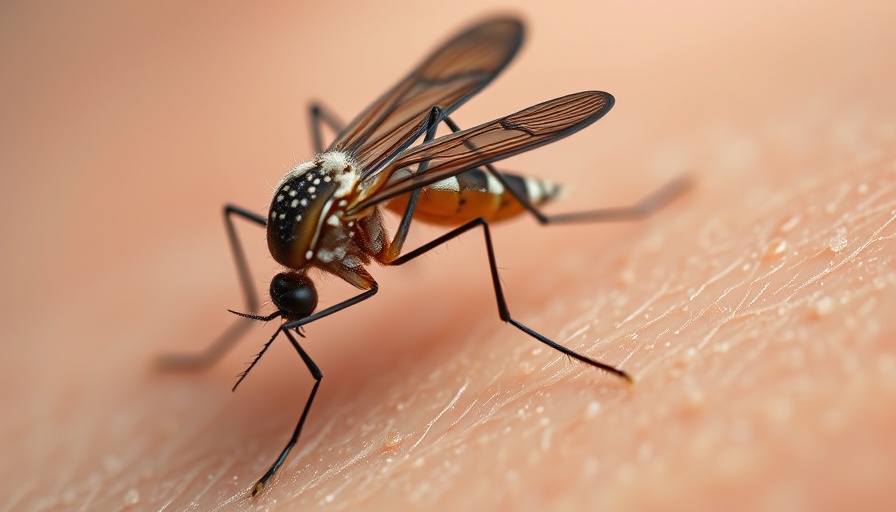
Understanding the Surge of West Nile Virus in Columbus
Columbus is facing an alarming uptick in West Nile virus cases among local mosquitoes, with infection rates peaking higher than in the last decade. According to data from the Ohio Department of Health, this trend echoes 2012's alarming numbers, raising concerns among health officials about public safety and mosquito management.
Why Is This Happening?
The current conditions have created an ideal breeding environment for mosquitoes. Health Commissioner Dr. Mysheika Roberts points to the wet summer, which has resulted in ample standing water throughout the region. “We’ve had a rainy season with multiple days of rain, and it’s crucial for residents to eliminate standing water on their properties,” she emphasized. Even small amounts of water, as little as a few tablespoons, can facilitate mosquito reproduction.
Current Statistics on West Nile Virus
This year's data from Columbus Public Health (CPH) indicates that positive test locations across the city have spread wider than usual, with newly deployed traps providing further testing. There has only been one confirmed human case in Columbus and one in northwest Ohio, which highlights that, while the risk is rising, immediate panic may not be warranted.
The Vulnerable Population and Precautions to Take
Most individuals bitten by infected mosquitoes will not exhibit symptoms. However, those over 50 or with compromised immune systems should remain especially vigilant. The best course of action involves proactive measures to keep mosquitoes from nesting in yards. Regularly emptying containers that hold water, maintaining bird baths, and keeping gutters clear are vital steps to prevent outbreaks.
Community Involvement and Education
Beyond personal action, there’s a need for broader community awareness. As professionals and entrepreneurs in Central Ohio, understanding how external factors such as public health impacts local business dynamics is crucial. A healthy environment is fundamental for business growth; therefore, collective efforts to manage mosquito populations should be encouraged. Staying informed through local health authority updates enhances community preparedness.
Future Trends and Implications for Public Health
The situation in Columbus serves as a reminder of how seasonal changes can affect public health. Ongoing education about proper mosquito management can cultivate community resilience against vector-borne diseases. Consumer behavior may shift as residents become more health-conscious, providing opportunities for local businesses focused on home and yard care.
Practical Tips for Residents
- Keep yards free of standing water and regularly clean outdoor areas.
- Wear light-colored, loose-fitting clothing and use insect repellent during outdoor activities at dusk and dawn.
- Check window screens for holes and ensure they are in good repair to keep mosquitoes out of homes.
This preventive approach not only protects personal health but also mitigates the risk of broader outbreaks.
Conclusion: Stay Informed and Act
As Columbus residents, embracing practical steps to combat the West Nile virus and staying updated on health advisories can foster a healthier living environment. For more information on the latest updates regarding mosquito control and West Nile virus, visit [Franklin County Public Health](https://mosquito.myfcph.org).
The recent rise in West Nile virus cases in mosquitoes is a cause for concern, but through community engagement and adherence to public health advice, we can all contribute to a safer environment for ourselves and our neighbors.
 Add Row
Add Row  Add
Add 




Write A Comment